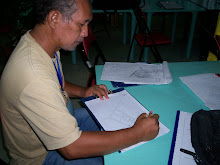(A paper presented to the International Conference on Gender, Fisheries and Globalization held on May 6-12, 2000 at the St. John's Memorial University, St. John's Newfoundland, Canada.)
Abstract
“Sexual discrimination”, “violence against women”, “gender bias”, “domestic violence”, “sexual harassment”, “unequal gender relations”. These are few words associated with “gender”. It is true that “gender” is about men and women, but more accurately, it is about the unequal relations that exist between women and men (J. Francisco, 1996). In a developing country like Philippines, gender inequality is a silent battle cry of women in the workplace in almost every establishment. It is also the bottom line of the struggle for women empowerment in the rural areas. The NGO/PO communities recognised this “gender problem”. Yet, oftentimes, women issues are set aside and are not defined in most development efforts. Except those development initiatives that are really intended for women, gender concerns are only add-ons because most development projects undertaken are confined to specific mandates isolating gender development framework.
In the coastal communities of Bohol, Coastal Resource Management initiatives are becoming popular. Recognising the challenge posed by fishery depletion and the strong lobbying against environmental deterioration, development institutions (NGO’s/PO’s), the government, academe and private individuals put their efforts together to address coastal environment threats. However, gender concerns are still put in isolation when it comes to project implementations. Development workers and community organisers take pains in addressing gender issues in order to become relevant in the communities. The experience of incorporating gender concerns in CB-CRM implementation in Batasan Island is only one of the many cases of initiatives undertaken by community organisers. It was not clearly defined in the project framework. Eventually, it broadened the project’s scope and in the process, widened the constituency, but it surely slows down the process.
Actually, genderising development work is faced with confusion and difficulties. In rural areas, it is an issue associated always with poverty and culture. It needs time, effort and enough resources. It needs focus. Amidst the contrasts and conflicts of globalisation’s super-imposed industrialisation, are people buried in extreme poverty. Adding to this reality, are the intensifying insurgency crisis in the countrysides, the increasing peasant and labor tensions and the inability of the government to address these problems. In this situation, women are affected twice just because they are women.
Hence, gender issues are always confronted with many obstacles brought about by the ills of society. The challenge of change should not only lie on the women’s shoulders. Gender issue is everybody’s issue no matter what our political belief and our status in society. It cut across ideologies and social classes.

No comments:
Post a Comment